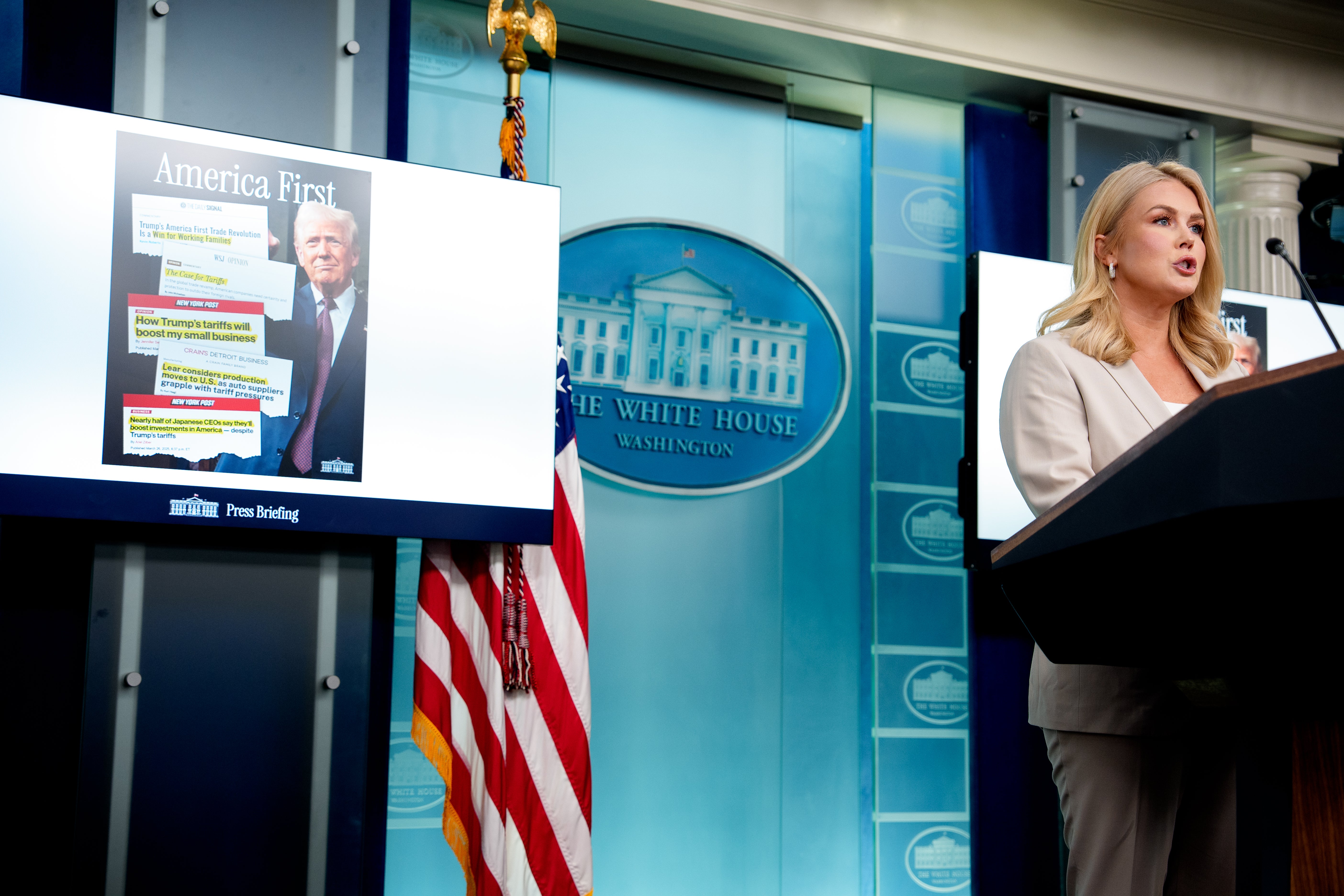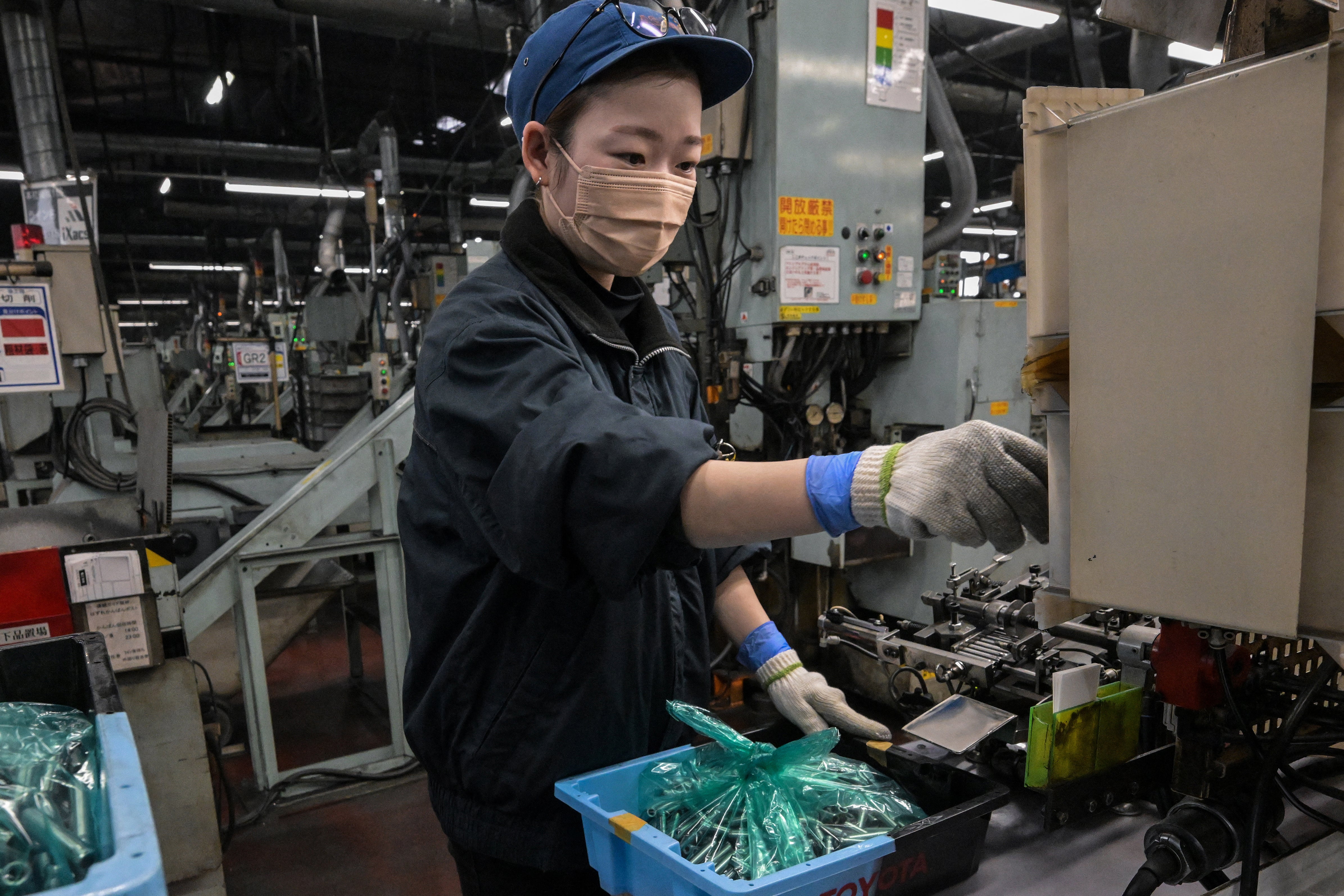Trump’s “day of liberation” is here. What do their rates for Americans mean?

Donald Trump it is healthy “Liberation Day in America “ Before launching “mutual” rates still not summoned on goods imported shortly after closing the markets on Wednesday.
It is not yet clear, exactly, what The administration is planning, or how new commercial barriers will have an impact on the economy e Costs of daily goods While the Americans face a restless market e a looming crisisWith an growing commercial war that should have a harmful economic chain effect.

About 24 hours before Wednesday, press secretary of the White House Karoline Leavitt He said that the president and his team were still “perfecting” the new policy.
Trump has already announced his intention to implement the rates on cars and imported cars and suggested that the incoming accusations are “mutual” with other countries, potentially targeting the production of pharmaceutical products and computer chips, among other goods.
Critics of the Administration and most economists have repeatedly argued that large rates are ultimately a tax on the Americans, since it is likely that importers and retailers increase the prices to compensate for the withdrawals they face.
What did Trump say about rates?
Trump called the word “rate“The” most beautiful word of the dictionary. “The officials of the President and the Administration argue that a deluge of imports has threatened the American industries and that a tax on these products would encourage companies to open factories and other production hubs in the United States to avoid rates.
“It is a matter of protecting the soul of our country,” said the president in his observations to the congress last month. “The rates concern America again and make America great again.”
Most economists agreed on Trump are based on an obsolete and self -injurious nationalist economic perspective. Trump also admitted that there will be “a small disorder” in the economy, but “we are well with that” because “it won’t be much”, he said in his speech to the congress.

Trump and officials have repeatedly stated that the rates on imported goods will involve lower prices for Americans. When a journalist from the Associated Press asked Leavitt of the Trump tariff plan last month, Leavitt falsely said that “rates are a tax cut for the American people”.
“I’m sorry, have you ever paid a fare? Why do I have. They are not charged to foreign companies. They are charged to the importers,” replied the journalist.
Leavitt defined his “offensive” question.
“When we have a fair and balanced trade, which the American people have not seen for decades, as I said at the beginning, the revenues will remain here, the wages will go up and our country will be made rich,” he said.
This week, pressed if the rates are the right move, Leavitt said: “They won’t be wrong … it will work”.
Hours before Trump’s announcement, with poor details available, head of the Small Business Administration Kelly Loeffler He told Fox Business that “Liberation Day” is “the greatest salvation, not only for small businesses, but for America”.
Trump’s retaliation tariff system is equivalent to a reckless “U.S. national interests, the allies will raise and deepen the economic insecurity for workers, consumers and small American businesses”, according to Robert Weissman, co -resident of the public citizen, who has been combined with different legal challenges against the administration.
“For decades, the carved commercial agreements have aroused jobs, stagnated wages and have put the profits of investors on public interests, but these rates do not concern the reversal of this damage,” he added. “It is a question of arming commercial policy to advance the restricted interests of the giants of fossil fuels, large technological companies and the billionaires of Trump-ventre distract from the total inability of the administration to provide a coherent and centered commercial agenda on workers”.
Which countries and products should be affected?
Large rates against the largest American commercial partners could significantly increase oil and gas costs, sugar, fresh fruit and vegetables, clothing, construction material and cars and car parts The Independent He reported.
Since it came into office, Trump has repeatedly threatened the rates on a series of goods, just to postpone them indefinitely or call them after reaching agreements with targeted nations.
Trump’s tariff threats targeted goods CanadaChina e MexicoBy arguing that officials are not adequately fighting illegal immigration or Fenanil movement in the United States. Trump imposed 25 % rates on Canada and Mexico, although they were paused twice, a 10 % rate on China and a 25 % rate on aluminum and steel.
He also floated huge rates on European alcohol and a 25 % rate on all imports from countries that acquire oil or gas from Venezuela is destined to come into force this month.

Trump has been back on 25 % rates on Colombian assets after the country agreed to receive deportation flights from the United States and has withdrawn a plan for a 25 % supplement on electricity exports from Ontario after Canada agreed to suspend its accusations.
In the observations of the oval office, Trump said he imposed a 25 % rate on all the cars that entered the country, that the White House would later apply to foreign cars even if the vehicles assembled nationally.
Imports pursuant to the United States-Messic-Canada agreement “will have the opportunity to certify their US content” and a 25 % rate “will apply only to the value of their non-US content”, according to the White House.
“I hope they increase their prices because if they do, people will buy American manufacture cars,” Trump said to NBC News of foreign car manufacturers. “I couldn’t care less because if the prices on foreign cars climb, they will buy American cars.”
So the prices are increasing?
More likely.
Americans could see higher costs for some goods – such as perishable foods – faster than others. More than half of the country fresh fruit and almost three quarters of its vegetables came from Mexico in 2022, according to the Department of Agriculture.
The United States import more cars and car parts from Mexico than any other country, representing about 27 percent of all cars.

“For car retailers and their customers, already returning from the increase in vehicles and parts prices, as well as high interest rates and insurance costs, these new rates represent an additional and unwelcome challenge to convenience”, according to the president of the American International Automobile Delors Association Cody Lusk.
Even the costs already cultivated with a simple screw have influenced the supply chains for American companies that do everything, from the “car parts to household appliances and calcium helmets to the tosaerba”, second The Wall Street Journal.
Will this cause a recession?
Could be.
“MEME” Recession indicator “aside, a number of key markers is starting to play alarms.
The restless markets were on a Russian mountain in view of Trump’s “Liberation Day” announcement, with Wall Street analysts who fear the risks of a recession around the corner. The highest consumption costs risk business slowdowns while Americans hold their savings to endure a potential economic center.
The rates of both directions in the commercial war – including those imposed by Trump and retaliation measures from the nation’s commercial partners – shocked the trust of consumers. Wall Street companies are reducing estimates for the expansion of the gross domestic product and the Federal Reserve’s favorite recession forecasting tool is showing negative signs.
“If both companies and consumers begin to worry and collect their expenses, this is what can overturn the United States in a recession”, the economist of the American university Kara Reynolds He told ABC News.
The work economist Kathryn Anne Edwards states that a potential recession under the Trump administration would be “self -inflicted”.
The recessions happen – the country has undergone more than a dozen in the last century – but the next one would probably be “probably the only recession directly caused by the White House politics”, He wrote in Bloomberg.




